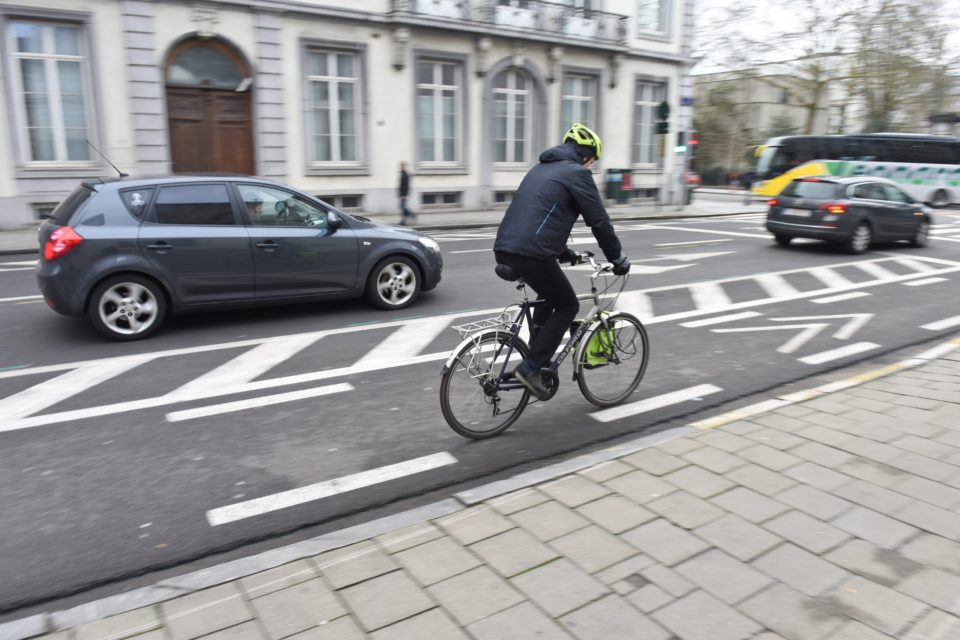An additional 40 kilometres of cycling paths will be created in Brussels' regional territory to ease public transport flows as the country begins to progressively lift the coronavirus lockdown.
"In the coming weeks, we will install 40 km of new cycling paths," Brussels Mobility Minister Elke Van den Brandt said on social media. "We are giving priority to the major [regional] routes, then the small and medium city rings."
"The situation will not be perfect, but never have so many cycling paths been built in Brussels in so little time," the minister added.
Related News
- Cotton, wool, silk: fabric used for face masks 'not important'
- Coronavirus: traffic in Flanders slowly increasing again
- Number of electric bike journeys has doubled, says Billy Bike
The plan will see additional cycling paths added in Boulevard Reyers, with works already ongoing in Avenue Général Jacques and set to begin on Monday in Rue de la Loi, one of the busiest roads in the capital.
In a race against the clock, mobility officials are aiming to have the infrastructure ready before the larger part of the public returns to work and school, with the key aim being to cut down on the use of public transport.
"The buses, trams, metros and trains are not ready to circulate at full capacity," Van Den Brandt said, adding that the public transport network needed to "adapt" in order to ensure safe social distancing between travellers.
"In Brussels, we know that a two-thirds of public transport rides are done for distances of under 5 km," she said, urging residents to leave public transport for the people "who have no other alternative."
The construction of the additional cycle paths comes after the approval of a plan to slash the maximum speed limit to 30 km/h in the entire regional territory.
In preparation to bring Brussels progressively out of the coronavirus lockdown, regional authorities have also worked with local officials to create "Slow Streets," where cars can go at a maximum of 20 km/h in order to give more space to pedestrians and cyclists and allow for more social-distancing.
Gabriela Galindo
The Brussels Times

